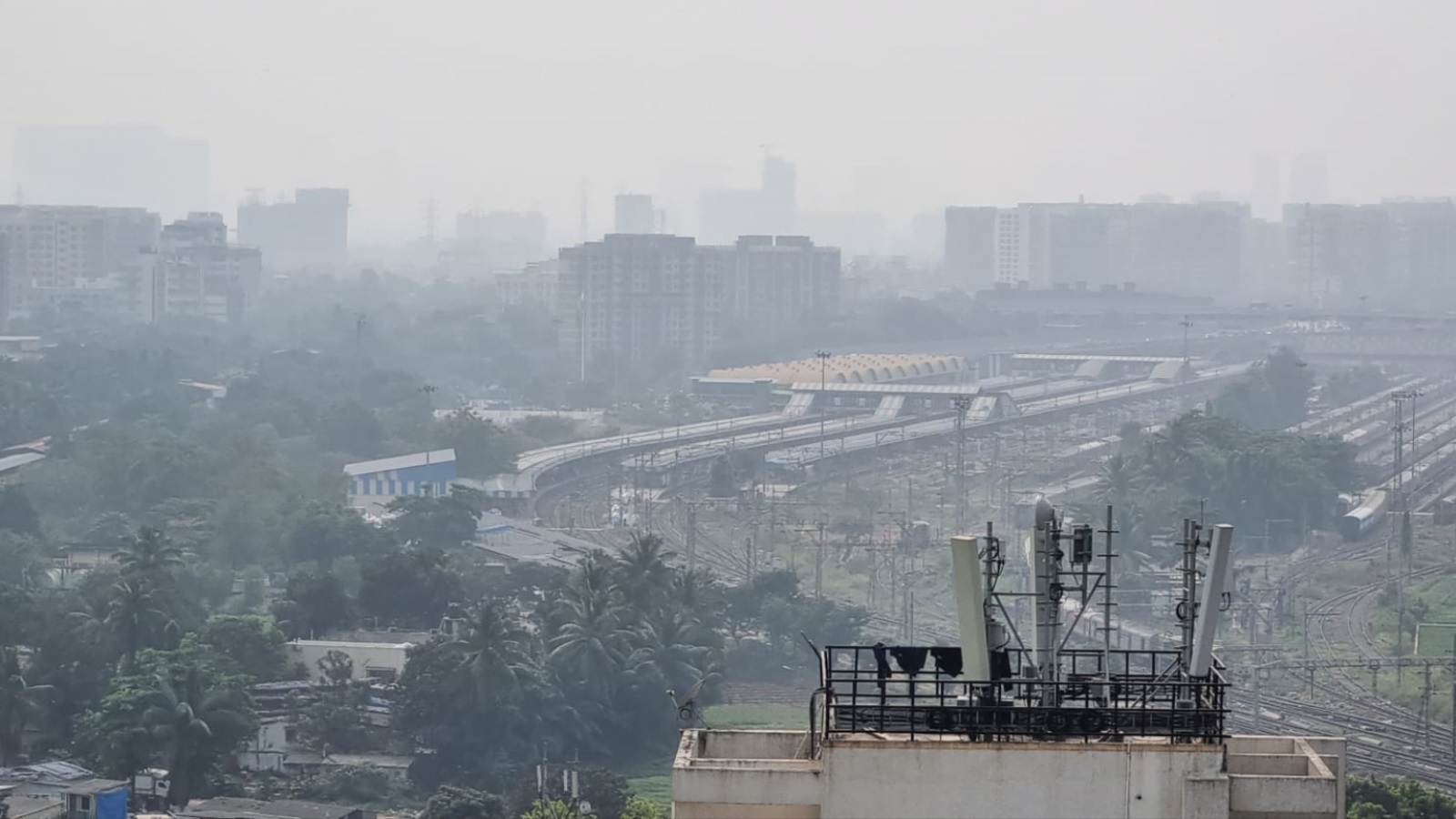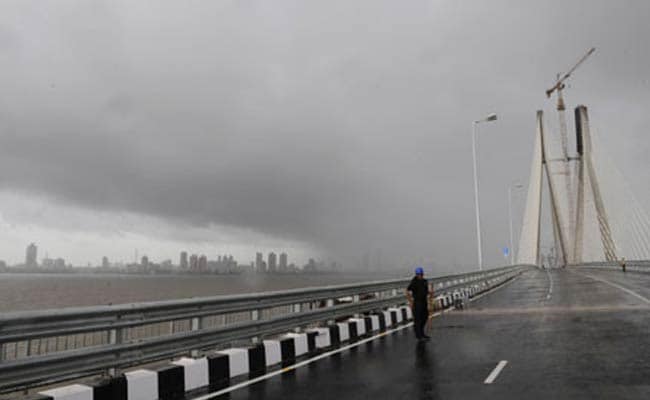Mumbai’s Bandra-Worli Sea Link Shrouded in Choking Smog Post-Diwali; Authorities Crack Down on Firecracker Offenders

Mumbai’s Bandra-Worli Sea Link Shrouded in Choking Smog Post-Diwali; Authorities Crack Down on Firecracker Offenders
In the wake of Diwali celebrations, Mumbai woke up to a hazy, polluted morning on Tuesday as smog blanketed the iconic Bandra-Worli Sea Link. The city, known for its vibrant spirit, found itself grappling with the aftermath of festive fervor, with pollution levels soaring to concerning heights. As citizens navigated through the misty air, the Mumbai Police took stringent action against those flouting firecracker regulations, filing 784 First Information Reports (FIRs) and penalizing 806 individuals for igniting fireworks outside the designated time frame of 8 pm to 10 pm.
The Bandra-Worli Sea Link, a symbol of Mumbai’s modernity and connectivity, stood obscured by the thick smog, casting a shadow over the city’s skyline. The once-clear view of the Arabian Sea from the bridge was replaced by an ominous haze, highlighting the immediate consequences of unchecked festive celebrations.
The Air Quality Index (AQI) for Mumbai, a crucial parameter indicating the level of pollution in the air, recorded an alarming 234 on Monday, firmly placing the city in the ‘poor’ category. The rise in pollution levels, exacerbated by Diwali festivities, has reignited concerns about the long-term impact on public health and the environment.
As citizens and authorities grapple with the fallout of Diwali celebrations, the Mumbai Police took a proactive stance against those violating the firecracker time restrictions. The 784 FIRs filed underscore the authorities’ commitment to enforcing environmental regulations and ensuring the well-being of the citizens.

Mumbai, a bustling metropolis known for its resilience, is no stranger to environmental challenges. However, the post-Diwali smog has amplified the urgency for sustainable practices and responsible celebration. The consequences of unchecked revelry were starkly visible as the city’s residents, donning masks, navigated through the murky atmosphere.
The Bandra-Worli Sea Link, usually a picturesque sight, became a poignant symbol of the environmental toll exacted by festive celebrations. The smog not only obscured the view but also served as a visual reminder of the need for collective responsibility in preserving the city’s air quality.
The Mumbai Police’s crackdown on firecracker offenders sends a clear message that environmental regulations are not to be taken lightly. The 806 individuals facing penalties serve as a testament to the authorities’ resolve to hold citizens accountable for their actions, especially when it comes to activities that directly contribute to air pollution.
The Air Quality Index, a numerical scale that quantifies the concentration of pollutants in the air, has become a crucial tool for assessing the impact of human activities on the environment. With a reading of 234, Mumbai’s air quality fell into the ‘poor’ category, indicating a significant risk to individuals sensitive to air pollution. The elderly, children, and those with pre-existing respiratory conditions are particularly vulnerable during such periods of heightened pollution.
The smog that enveloped the Bandra-Worli Sea Link serves as a visual representation of the urgent need for public awareness and collective action. Beyond the immediate discomfort caused by the haze, the long-term health implications of sustained exposure to such levels of pollution cannot be understated. Respiratory issues, cardiovascular problems, and a general decline in overall health are potential consequences that warrant serious attention.

While Diwali is a time-honored tradition marked by joyous celebrations and the exchange of goodwill, the environmental toll of fireworks has become an increasingly contentious issue. The call for eco-friendly celebrations has gained momentum in recent years, with environmentalists and concerned citizens advocating for a shift towards sustainable practices.
The Mumbai Police’s swift response to firecracker violations aligns with the broader discourse on environmental conservation and responsible citizenship. It highlights the importance of balancing cultural traditions with a commitment to safeguarding the environment. As India’s financial capital grapples with the consequences of festive revelry, it prompts a broader conversation about the need for sustainable, eco-conscious celebrations.
The Bandra-Worli Sea Link, shrouded in smog, stands as a metaphor for the delicate balance between progress and environmental responsibility. As a city that continually evolves, Mumbai must navigate the challenges posed by unchecked urbanization and ensure that its development does not come at the cost of the well-being of its residents and the environment.

In conclusion, the post-Diwali smog engulfing Mumbai’s Bandra-Worli Sea Link serves as a wake-up call for both citizens and authorities. The tangible consequences of unchecked celebrations and the subsequent crackdown on firecracker offenders underscore the delicate equilibrium between tradition and environmental conservation. As Mumbai grapples with the aftermath of festive revelry, it is imperative that the lessons learned translate into sustainable practices and a collective commitment to preserving the city’s air quality for generations to come.




